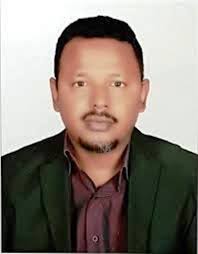Weekly Press Columns Digest
02 May, 2021
KHARTOUM (Sudanow) - Among others, the press columnists last week tackled the drowning of 130 Sudanese nationals while trying to cross the Mediterranean sea into Europe. The writers have also written elaborate commentaries on the controversial draft jurisdictions of the security and the decided retrial of former Vice President Mohammad Yousif Kibir after an appeal court revoked the ruling of the primary court that tried him of corruption charges.
Following is a review articles on those three issues:
Editor of the daily journal Aljareeda (the newspaper), Mr. Ashraf Abdelaziz has commented on the tragic drowning to death of 130 Sudanese nationals while trying to cross the Mediterranean Sea into Europe. He wrote:
A Sudanese immigrant has expressed his awe at the tragic accident near the Libyan shore in which 130 Sudanese drowned. This immigrant has asked: For how long will Africa continue to lose it sons as a result of attempts to travel to Europe. He said the human trafficking network was aware that the weather was not helpful for such a trip. And regardless, the voyage took off. This is a crime that deserves questioning, for justice’s sake.
Added the immigrant: The simple immigrants were hoping to realize even a small portion of their dreams. They found no way other than taking this adventure. Their bitter conditions back home, where their communities had failed to provide them with the minimum of livelihood, had led them into death.
The Sudanese immigrant has condemned what he called the EU failure to rescue these victims and return them to Libya, given the fact that most of them were under 18 years of age. Some of them were forced to sell out all what they possessed to make the journey to Europe, leaving their families under the burden of debts.
The immigrant has said that such tragedies are painful in that they are documented where the human traffickers publish videos propagating what they can do to take people to Europe. The European authorities are capable of putting the perpetrators of these crimes before courts of law where they can be punished. The Libyan authorities can also be obliged to try them. But nothing of that is done.
This narrative is very painful on the part of that immigrant. It gives the glaring truth. The post-revolution Sudan, though has freed itself from external isolation by its removal from the American list of state-sponsors of terrorism, is still staggering. And the government that achieved partial peace and is trying to complete it, is still unable to resolve the economic crisis. The country could not realize the dreams of the revolutionaries in a decent living. Despite the change that took place, the youths found no way other than the same previous options, the worst of which is ‘riding the boat.’
This piece of news coincides with the travel to Ndjamena by official and unofficial delegates to offer condolences in the death of Chadian President Idris Debi. Mourning in this case is mandatory. But why didn’t the Government open condolences for, or even issue a statement, on the death of these victims. Don’t they have a right in mourning, as long as the government had failed to provide them with a decent means of living, a matter that forced them to seek it across the open sea, congesting a small boat?
What had been spent on the planes to Ndjamena to offer condolences in the death of Debi was enough to tell us where these youths had died and who they were. It was enough for Chairman Burhan to take part in the funeral in the Victory Square of Ndjamena.
@@@@@
Writing in the Altahreer (liberation) electronic publication, Mr. Yousif Alsondi has discussed the proposed security law:
A document is circulating on the media which we are told to be a draft security law. No matter if that paper is genuine or not, its discussion is essential because it tackles an important issue which has not been settled yet. That is the law of the transitional security.
Most of those who saw that document had paused at its giving the security the right to arrest. The draft law authorizes the security to arrest a person for a variation of periods 48 hours and 72 hours. This authorization is a reminder of the notorious power to arrest under the Bashir regime.
The present government is a transitional authority that came to power due to a long struggle in which much Sudanese blood was shed and many Sudanese had suffered in the defunct regime’s jails.
There is no logic in the government adding any arrest authorizations to the security. The government should have been keen to confine the authorization to arrest solely to the police, while the security’s authority should be limited to the collection and analysis of information and passing it to concerned bodies.
The government should not accept this, in particular the civilian side of the government. Most of the civilian leaderships in this government had suffered the horrors of detention in the cells of Bashir’s security.
They were the most critical of the salvation government’s authority, often describing it as an authority of highwaymen and violators of human rights. Will these leaders do the same after they have ascended to power? Then what is the difference between them and the salvation government?
The civilian state the Sudanese had called for during the revolution and for which they have sacrificed dear blood and lives should not tolerate a security that arrests, tortures and kills.
What had happened to Martyr Ahmed Alkhair cannot be repeated at the time of the revolution’s government. If genuine, the text in circulation of the security code, is wrong and its backers should know that it is unlawful at the age of this revolution.
@@@@@
The first instance court’s exoneration of former vice president Osman Mohammad Yousif Kibir (a ruling now reportedly revoked by the appeal court) has prompted this comment from writer Murtada Alghali. Writing in the Aldemograti (the Democrat), Ghali has said:
Any novice accountant can testify that the Salvation Government, during its thirty years of rule, and until it was sent by the protesters to the general garbage dumping ground, had never seen even a single accounting procedure without a fraud.
It is common knowledge that any official of that government (or a messenger of such an official) would go to the treasury of the central bank or that of any government body and give a verbal or handwritten money order. He would then collect the sum in the boot of his car and go.
The occasion of what we say is the decision by the first instance court pardoning the former vice president of the republic Osman Mohammad Yousif Kibir from charges of corruption and breach of trust. Everybody was astonished by that ruling, saying: Innocent? Despite all those grave offences?
How could Kibir have escaped all those crimes and offences?!. Only God knows. And… no comment!
But the appeal court has turned down that ruling, stating that the accusations before the first court were concerned with a breach of trust by a public state employee, a violation of the illegal wealth law, money laundering, and a violation of anti-corruption law.
The appeal court juries said the first court was wrong because the defendant had conceded before it that he had received public money and channeled it in his private account. He also failed to explain how he had spent that sum. The first court
should have accused Kibir under the right article, because Kibir was questionable under two articles in the penal code and illegal wealth. That is why what had happened has happened. No explanation.
But the Attorney General and his staff should tighten their accusations before putting them before the judiciary.
The Salvation Government’s crimes are clear and revealing and “need no chemistry.”
Kibir’s case, so grave as it is, is one of the slightest financial irregularities as compared with the Salvation Government’s major crimes. But this case reveals the disorderliness in the judicial organs’ fabric and the “snail-like” slowness of these organs, the weakness in their priorities and the poor programming of cases in the Attorney General Chamber. Negligence of judicial and police reform is the pest of pests. The duty of the hour is immediate reform of these bodies.
E N D
YH/AS








